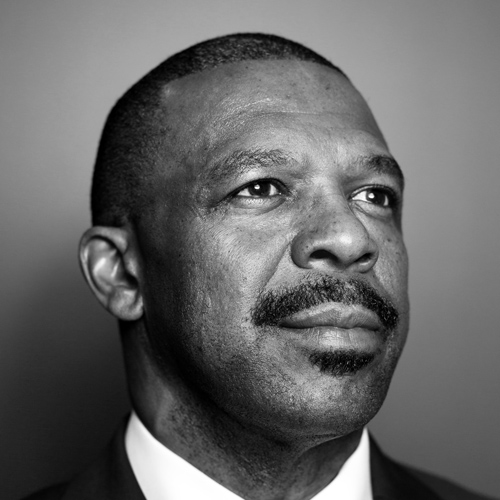|
Getting your Trinity Audio player ready... |
In the legal department of PayPal’s San Jose, California, office, not only does the work seem endless, but it can also come from any direction at any time.
Regulatory changes need to be accounted for in both the United States and abroad. A global network of roughly 18,500 employees work toward a goal of democratizing financial services while also having to adapt to a constantly evolving stream of business and legal developments.
Privacy rules are again updated in another country where PayPal does business. Business counterparts may suggest the company moves one way, while leadership ponders another direction. Diversity and inclusion is being discussed throughout the industry, but is enough being done to move it into practice?
More often than not, all of these competing interests and issues intersect in the office of Wanji Walcott, PayPal’s general counsel. With more than twenty years of legal experience—first in private practice and other in-house law departments and most recently at American Express, where she was before joining PayPal—Walcott says she figured she had a solid understanding of the multiple responsibilities a general counsel has. But when she became PayPal’s general counsel in February 2017, she gained a new appreciation for what the role entails.
Point of Disruption
When it was launched from Palo Alto, California, in 1998, few predicted the ramifications PayPal would have on not only the financial market, but also in changing how we manage money all together. At the time of its launch, PayPal acted similarly to a digital wallet, and it has now replaced the need to mail checks, withdraw money, and more.
Recognized by some as the original disruptor when the first payment was sent via a Palm Pilot, PayPal has gone on to increase its platform with the likes of Braintree, Venmo, and Xoom, which enable consumers and merchants to receive money in more than one hundred currencies, withdraw funds in fifty-six currencies, and hold balances in their PayPal accounts in twenty-five currencies.
“Sometimes I ask myself, ‘Well, Wanji, what did you think was going to happen?’” she says with a laugh. “You have an image in your mind of what a general counsel deals with in terms of the weight of certain issues and the volume of work and responsibility, but until you’re in this seat, you might not appreciate the full breadth of those issues. We’re in a highly regulated, global business, and with that comes a lot of complexity and demands.”
It’s an environment in which Walcott thrives. Although PayPal has a seventeen-year history, its split from eBay in 2015 to become its own public company spun the online payment system into new territory. In many ways, Walcott says, it feels like a new company. And while payments, cybersecurity, and privacy laws can change in any part of the world at any moment, Walcott finds the company can ride the sweet spot of being both reactive and proactive.
“We have the benefit of interacting with a lot of regulators around the world to share insights on the mobile payments industry,” she says. “The other side of it is keeping abreast of evolving regulations that impact the business and complying with them. You get to the point where you develop strong, ongoing relationships with regulators and have an opportunity to inform evolution in the industry.”
That influence extends beyond dollars, cents, and bytes of information. In addition to her role as general counsel, Walcott has also been instrumental in helping launch the company’s black employee network to foster and promote a more inclusive workplace that not only promotes cultural awareness and supports recruitment and retention, but also supports further insight and thought leadership.
Walcott is also PayPal’s newly appointed sponsor of the company’s women’s employee network and a member of the GC Thought Leaders Experiment, in which general counsel from more than twenty-five major companies measure which law firm practices yield better outcomes and relationships in support of corporate clients.
“As in-house counsel, I feel like we’re positioned to have a positive impact on diversity and inclusion in the legal field,” Walcott says. “Whether it’s more focused efforts as we work with outside counsel—I’ve begun to expand beyond the usual suspects and seek minority- and women-owned law firms—or increasing awareness about what we can be doing to have a positive influence on diversity and inclusion, I think we have an opportunity to transform the industry.”
“I want to make PayPal the employer of choice. Not just for my lawyers and the legal team but across the board. I want people to feel included and welcome—that they have a voice and contribute just as much as the employee sitting next to them.”
Wanji Walcott
It’s important that the opportunity is taken rather than simply identified, however. In a budget-conscious environment such as the legal department, the goal is always the highest quality service and best possible outcome, at the right cost. Walcott points out that while that should be a driving factor, it can also stifle creativity. Although there’s been some experimentation for more than a decade with flat fees versus fixed fees, Walcott says she hasn’t seen a tremendous amount of innovation. The GC Thought Leaders Experiment could provide the chance to turn current thinking and practices on its head.
“I’d like to see more creativity in billing for services while maintaining quality, pushing firms to facilitate situations where they can get to know us better and optimize how they provide support,” she says. “We can continue to communicate to firms the importance of diversity and inclusion, but I don’t want them to tell me how important it is to them. I want them to show me.”
Talking the talk is one thing, but Walcott understands that walking the walk is another. That’s why, in addition to her own efforts to focus more on minority- and women-owned law firms for outside counsel help, she’s also encouraging her department to not think of themselves simply as the lawyers for PayPal.
“We could just say, ‘These are the new laws; you need to comply with them. Good luck; keep me posted,” she says. “Instead, we like to say, ‘These are the new laws and regulations that you need to comply with, and we’ve come up with a few options that we want to run by you.’ These are conversation starters to get you thinking about how to comply. It generates more enthusiasm and sparks their creative juices to come up with other options or augments besides the solutions we’ve suggested.”
In fostering a collaborative environment instead of a referential one, Walcott says she’s pushing three key concepts on her team: empowerment, authority, and accountability. The goal is not only to build the strongest legal team at PayPal possible, but also to spark a ripple effect that can permeate beyond one department. Given her work trying to change the industry in terms of in-house counsel working with outside firms, that’s hardly surprising.
“I want to make PayPal the employer of choice,” Walcott says. “Not just for my lawyers and the legal team but across the board. I want people to feel included and welcome—that they have a voice and contribute just as much as the employee sitting next to them.”
Leadership, as told to by Wanji Walcott
“I actually carve out specific time to think about how I’m leading the team, so that I can evolve and optimize how I do it. It’s not just an exercise. I’ve been doing that for many years—from when I led two people to now, where I’m leading an entire legal function. I’d characterize my style as one of a servant leader. I view my role as partnering with and enabling my team to help them in what they need to get done in support of the business. It’s not for me to do it. It’s not for me to second guess them. The three words I’ve been using with my team repeatedly are empowerment, authority, and accountability. I want my team to feel empowered and exercise their judgment in support of the business, and I want them to feel like they have the authority to do that. Everyone’s on a journey but at a different stage. I wouldn’t expect the same from a lawyer with three years of experience that I would from a lawyer with ten years of experience, but within certain bounds, this applies to everyone on the team. Once people are empowered and have authority, they should feel accountable.”

